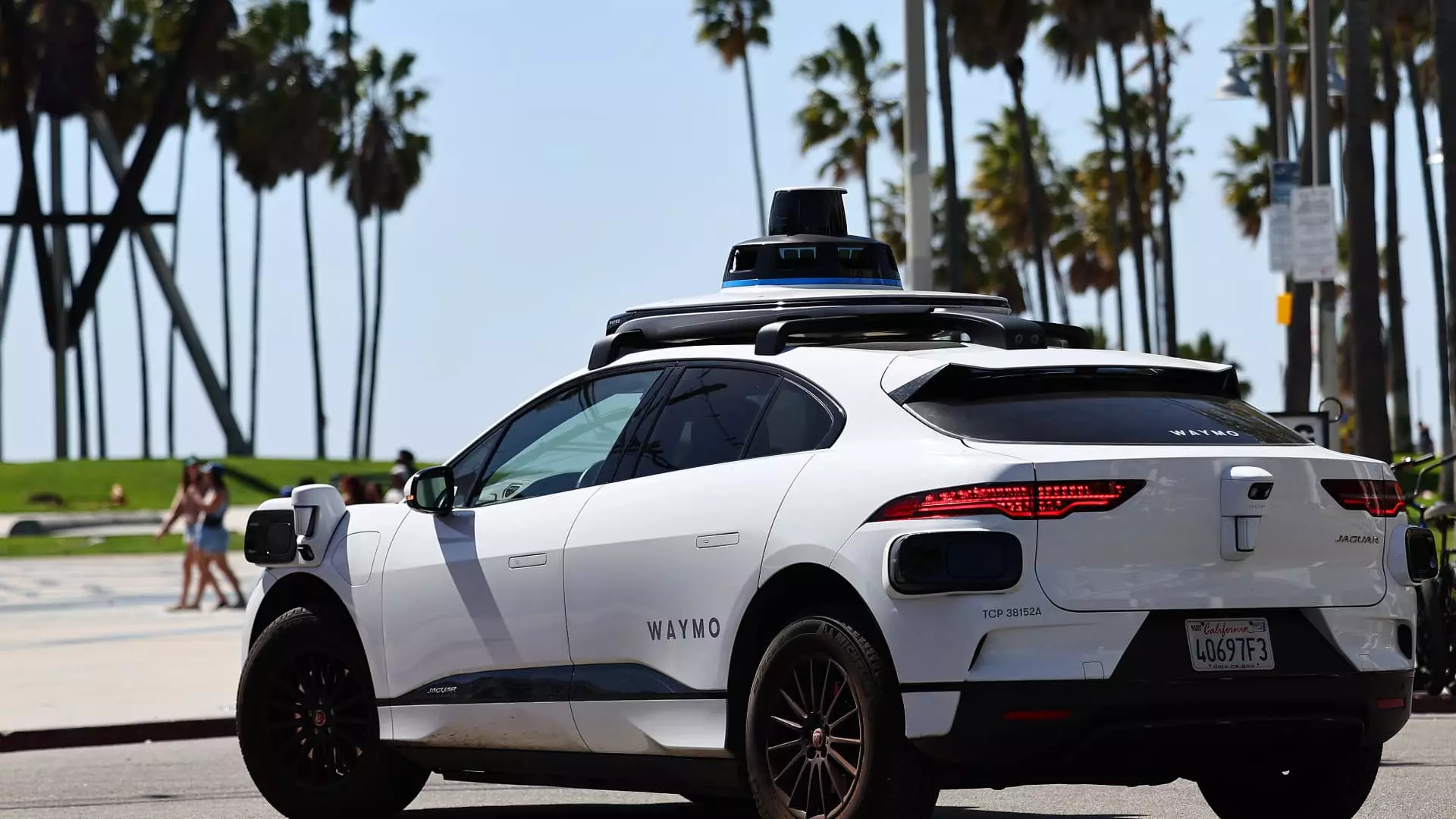Waymo, the autonomous vehicle subsidiary of Alphabet Inc., announced a significant achievement with the closure of a funding round totaling $5.6 billion, aimed at expanding its robotaxi operations beyond existing markets such as Los Angeles, San Francisco, and Phoenix. This substantial investment showcases not only Waymo’s ambitions but also the confidence that major investors, including Andreessen Horowitz, Fidelity, and T. Rowe Price, have in its prospects. This funding boosts Waymo’s total capital to over $11 billion, facilitating improved technology and broader service deployment.
As the demand for reliable ride-hailing options continues to grow, Waymo positions itself at the forefront of this shift, with co-CEOs Tekedra Mawakana and Dmitri Dolgov emphasizing that funds will be allocated to refine the Waymo Driver’s capabilities. This is an essential step in not just enhancing existing services but also tailoring them to meet the needs of businesses. By focusing on expanding its fleet and operational reach, Waymo aims to create a more versatile transportation solution capable of attracting a broader customer base.
Capitalizing on Consumer Trust and Safety
The emergence of self-driving cars has ignited a significant discourse surrounding safety, particularly as many potential users express reservations toward autonomous technology. Recent surveys indicate that approximately two-thirds of Americans remain reluctant to step into a driverless vehicle. However, Waymo has found a niche by catering to specific demographics, including women adopting this service due to their heightened safety concerns about traditional ride-hailing options. This focus on safety could play a pivotal role in Waymo’s marketing strategy, potentially influencing public perception and acceptance of autonomous vehicles.
Moreover, Waymo’s service model—where riders can summon robotic taxis via a user-friendly app—enhances consumer confidence in the technology. The service reportedly facilitates over 100,000 rides per week across its operational cities. By continually expanding this user base, Waymo strengthens its capacity to collect real-time data, which is vital for refining its algorithms and reinforcing safety measures.
Despite Waymo’s lead in commercial robotaxi operations, the landscape remains competitive, highlighted by the ambitions of companies like Cruise and Tesla. Tesla’s CEO, Elon Musk, has long touted the promise of fully autonomous ride-hailing services, revealing plans for driverless operations in Texas and California as soon as next year. However, Tesla’s current technology still requires human oversight, placing it at a disadvantage compared to Waymo’s fully autonomous capability.
Cruise, once considered Waymo’s closest competitor, experienced a setback after a high-profile incident involving one of its vehicles. The fallout from such events emphasizes the precarious nature of navigating the regulatory and public safety landscape for autonomous vehicles. Both companies are vying for regulatory clearance while needing to continuously prove their safety metrics in order to win consumer confidence.
To sustain its competitive edge, Waymo combines cutting-edge technology with strategic partnerships. The recent collaboration with Hyundai marks a significant shift, as the Ioniq 5 electric vehicle is set to join Waymo’s robotaxi lineup. This partnership not only signifies a commitment to innovation but also reflects a movement towards sustainability in the autonomous vehicle market, aligning with broader environmental goals.
Additionally, Waymo’s acceptance of market limitations, such as environmental factors, shows foresight. The company’s plans to test its vehicles under harsher winter conditions in regions like northern New York and Michigan demonstrate its intent to broaden its operational geography, challenging conventional views that self-driving cars are limited to temperate climates. This adaptability could redefine the future landscape of urban transportation.
The recent funding round marks a milestone for Waymo as it embarks on an ambitious expansion of its robotaxi services. With significant investments backing its endeavors, growing consumer acceptance due to safety features, and strategic partnerships designed to enhance its fleet, Waymo is poised to reshape urban transport.
However, the challenges of establishing trust and proving the safety of autonomous vehicles are significant hurdles that Waymo must navigate. As it ventures beyond traditional boundaries, the successes or failures of Waymo could have profound implications not just for the company, but for the future of autonomous driving as a whole. The landscape of transportation is evolving, and Waymo stands at the forefront, ready to lead the charge into a new era of mobility.

